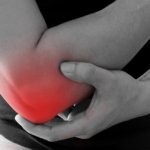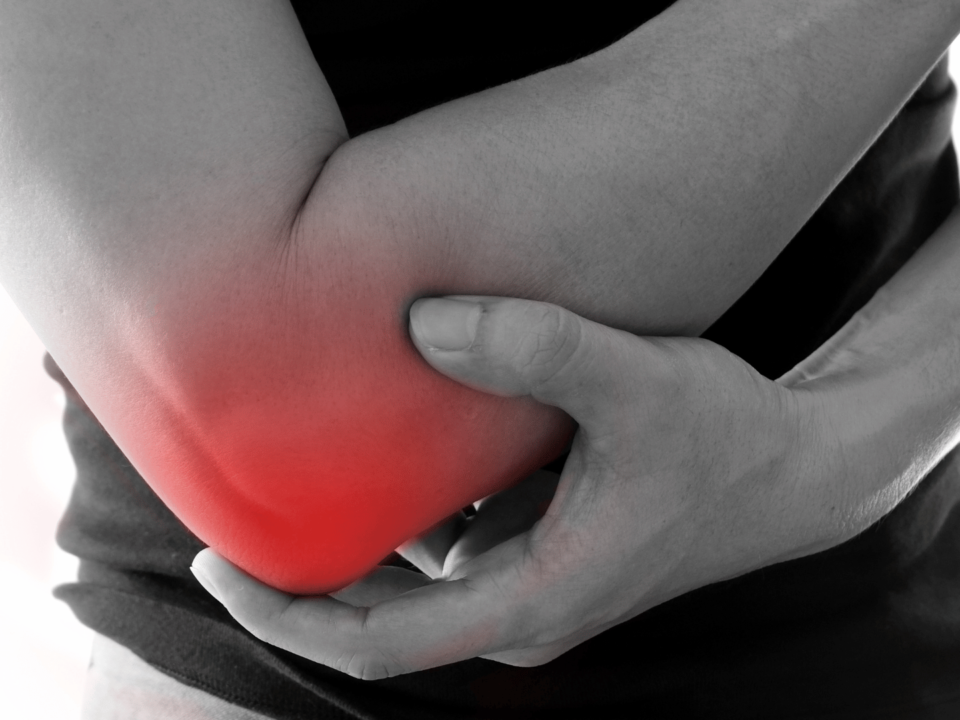
Doctor for Elbow Pain | Specialized Orthopedic Treatment
January 30, 2025
How to Find the Best Elbow Doctors Near Me?
February 6, 2025Shoulder pain or discomfort can have a significant impact on your daily life, limiting activities that range from simple tasks like brushing your hair to athletic pursuits like swimming or tennis. Because the shoulder joint is incredibly mobile and complex, treating its issues often calls for expert knowledge. In this blog post, we’ll discuss why you might need a specialized doctor for shoulder problems, what to expect during a consultation, and the common treatment options available.
Get back to living pain-free: visit our Pain Management page
1. Understanding Common Shoulder Conditions
- Rotator Cuff Issues
- Tendinitis, impingement, or tears can weaken these critical tendons and muscles, making shoulder movements painful or unstable.
- Shoulder Instability
- Chronic dislocations or subluxations (partial dislocations) can damage soft tissues, leading to recurring pain and reduced mobility.
- Frozen Shoulder (Adhesive Capsulitis)
- Characterized by stiffness and reduced range of motion, frozen shoulder develops when the joint capsule becomes inflamed and tight.
- Shoulder Arthritis
- Degenerative changes in the joint cartilage can cause pain, swelling, and reduced movement over time.
- Labral Tears
- A tear in the ring of cartilage (labrum) that helps stabilize the shoulder joint may result in clicking, catching, or a sensation of the joint “giving out.”
Identifying the root cause of shoulder problems is crucial, as treatment approaches will differ significantly based on whether you’re dealing with a rotator cuff tear, instability, or arthritis.
2. The Role of a Specialist for Shoulder Pain
While a primary care physician can manage mild shoulder issues, a specialized shoulder doctor (often an orthopedic specialist or sports medicine physician) brings in-depth knowledge of the shoulder’s anatomy and the latest therapeutic techniques. These experts:
- Provide Accurate Diagnoses: They use physical exams, medical imaging, and specialized tests to pinpoint the exact source of your shoulder pain.
- Offer Tailored Treatment: Whether you need non-surgical interventions or a complex surgical repair, a specialist customizes a care plan to suit your condition and lifestyle.
- Facilitate Team-Based Care: In many cases, shoulder specialists work closely with physical therapists, pain management experts, and other professionals to ensure a full spectrum of support.
3. What to Expect During an Evaluation
Medical History and Symptoms
Your doctor will start by reviewing your health background and discussing any recent injuries, daily activities, or specific sports that might strain your shoulder. They’ll also ask about the intensity, duration, and type of pain or discomfort you’re experiencing.
Physical Examination
Next, the doctor will perform targeted movements—checking your range of motion, stability, and muscle strength. They might also test for impingement or instability to see how your shoulder responds under different conditions.
Imaging and Diagnostic Tests
- X-Rays: Can reveal bone spurs, arthritis, or signs of dislocation.
- MRI/Ultrasound: Help visualize soft tissues like tendons, ligaments, and muscles for injuries such as rotator cuff tears or labral damage.
- CT Scans: Offer detailed bone imaging, especially useful if previous surgeries or fractures complicate the shoulder’s structure.
Find relief from shoulder pain today: visit our Pain Management page for tailored solutions
4. Non-Surgical Treatment Options
Most shoulder issues can be managed without surgery, especially when diagnosed early. Depending on your diagnosis, your doctor may recommend:
- Medications
- Over-the-counter NSAIDs (nonsteroidal anti-inflammatory drugs) or prescription pain relievers to reduce pain and inflammation.
- Injections
- Corticosteroid or platelet-rich plasma (PRP) injections for targeted relief of inflammation or to encourage tissue healing.
- Physical Therapy
- Strengthening exercises for the rotator cuff and surrounding muscles, range-of-motion drills, and posture training to alleviate stress on the joint.
- Activity Modification
- Avoiding overhead activities or heavy lifting while the shoulder recovers, plus ergonomic adjustments for workstations and sports techniques.
5. Surgical Intervention and Recovery
If conservative treatments fail or if imaging shows significant structural damage, surgery might be necessary. Shoulder procedures vary widely:
- Arthroscopic Surgery: A minimally invasive approach using small incisions and a camera (arthroscope) to view and repair tendon tears, remove bone spurs, or address other issues.
- Open Surgery: Required in more complex cases, such as extensive rotator cuff tears, multiple dislocations, or advanced joint damage.
- Shoulder Replacement: For severe arthritis or irreparable damage, partial or total joint replacement can help restore function and relieve pain.
Post-surgery, a dedicated rehabilitation program is essential. Physical therapy focuses on restoring range of motion, building strength, and gradually returning you to daily activities or sports. Consistent follow-up appointments help monitor healing and address any concerns promptly.
6. When to Seek Help for Shoulder Problems
It’s easy to overlook a mild shoulder ache or occasional discomfort, but delaying treatment can worsen an underlying issue. You should consider consulting a specialized doctor if:
- Pain persists for more than a week or worsens over time.
- You struggle with routine tasks—such as brushing your hair or reaching overhead.
- You experience recurring dislocations or a sensation that the shoulder might “slip out.”
- You notice decreased strength, difficulty bearing weight, or significant stiffness that limits motion.
DR. for Shoulder Pain: Conclusion
A specialized doctor for shoulder problems is often the key to a timely diagnosis and targeted treatment plan, whether your goal is to get back on the field, maintain your fitness routine, or simply move through daily life without discomfort. By addressing shoulder issues early—and following medical advice on treatments, physical therapy, and preventive measures—you can safeguard the long-term health of this vital joint.
If your shoulder pain is persistent or affecting your quality of life, don’t delay. Make an appointment with a dedicated shoulder specialist for a thorough evaluation and personalized solutions. The sooner you seek expert help, the sooner you can find relief and restore comfortable, pain-free movement.
FAQ: Doctor for Shoulder Problems
When should I see a doctor for shoulder pain?
You should seek professional care if your shoulder pain persists beyond a week, worsens over time, or limits everyday activities such as lifting, reaching, or grooming. Early intervention often prevents further damage and speeds up recovery.
Do all shoulder injuries require surgery?
No. Many shoulder issues—like minor rotator cuff strains or impingement—can be successfully managed with non-surgical treatments, including physical therapy, medication, and activity modifications. Surgery is generally considered when conservative methods fail or if there’s significant structural damage.
How is a shoulder problem diagnosed?
Your doctor will review your medical history, conduct a physical exam, and may order imaging tests such as X-rays, MRIs, or ultrasounds. These help identify the root cause—whether it’s a rotator cuff tear, labral damage, or arthritis—and determine the best course of treatment.
What are some common non-surgical treatment options?
Non-surgical treatments include rest, anti-inflammatory medications, corticosteroid or platelet-rich plasma (PRP) injections, and physical therapy exercises designed to restore mobility and strengthen the shoulder’s supporting muscles.
How long does recovery from shoulder surgery usually take?
Recovery timelines vary depending on the complexity of the procedure and individual factors like age, overall health, and adherence to rehabilitation. Arthroscopic surgeries may allow for quicker returns to daily activities (a few weeks to a couple of months), whereas more extensive open surgeries can require several months of physical therapy and follow-up care.
Does physical therapy really help?
Absolutely. Physical therapy is often central to both non-surgical and post-surgical recovery. By focusing on targeted exercises to improve strength, flexibility, and stability, it helps alleviate pain, speeds healing, and reduces the risk of future shoulder problems.
How can I prevent shoulder problems in the future?
Maintaining proper posture, strengthening the shoulder girdle and rotator cuff muscles, warming up before strenuous activities, and avoiding repetitive overhead motions can all reduce your risk of recurring shoulder issues.
What doctor to see for shoulder pain
When shoulder pain is mild or related to overuse, a primary care physician or sports medicine specialist may be your first stop. However, if the discomfort persists, worsens, or involves significant weakness or a limited range of motion, it’s best to consult an orthopedic doctor with shoulder expertise. These specialists have the training to diagnose and treat issues like rotator cuff tears, impingement, or labral injuries, ensuring a personalized treatment plan that may include physical therapy, medications, injections, or surgery as needed.




